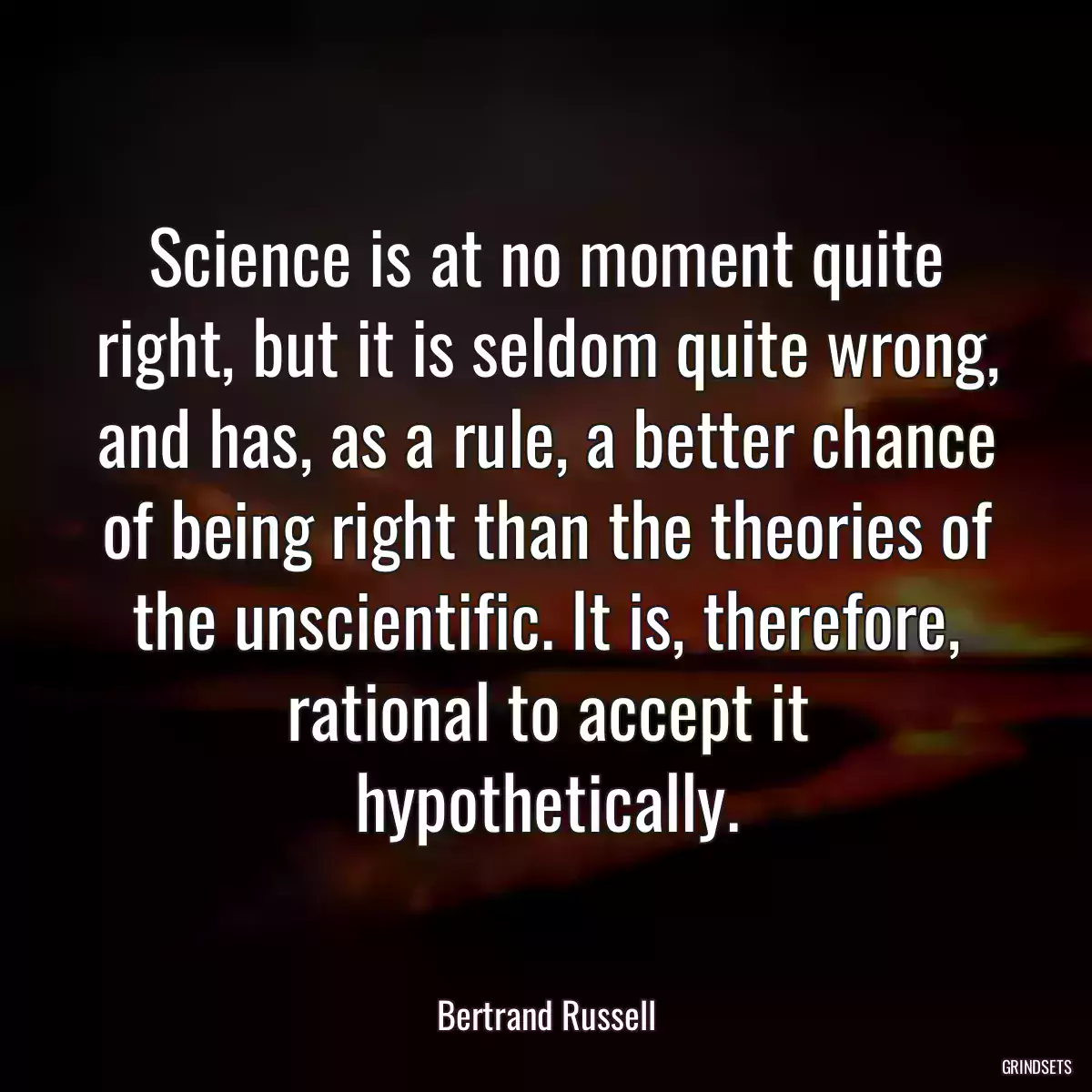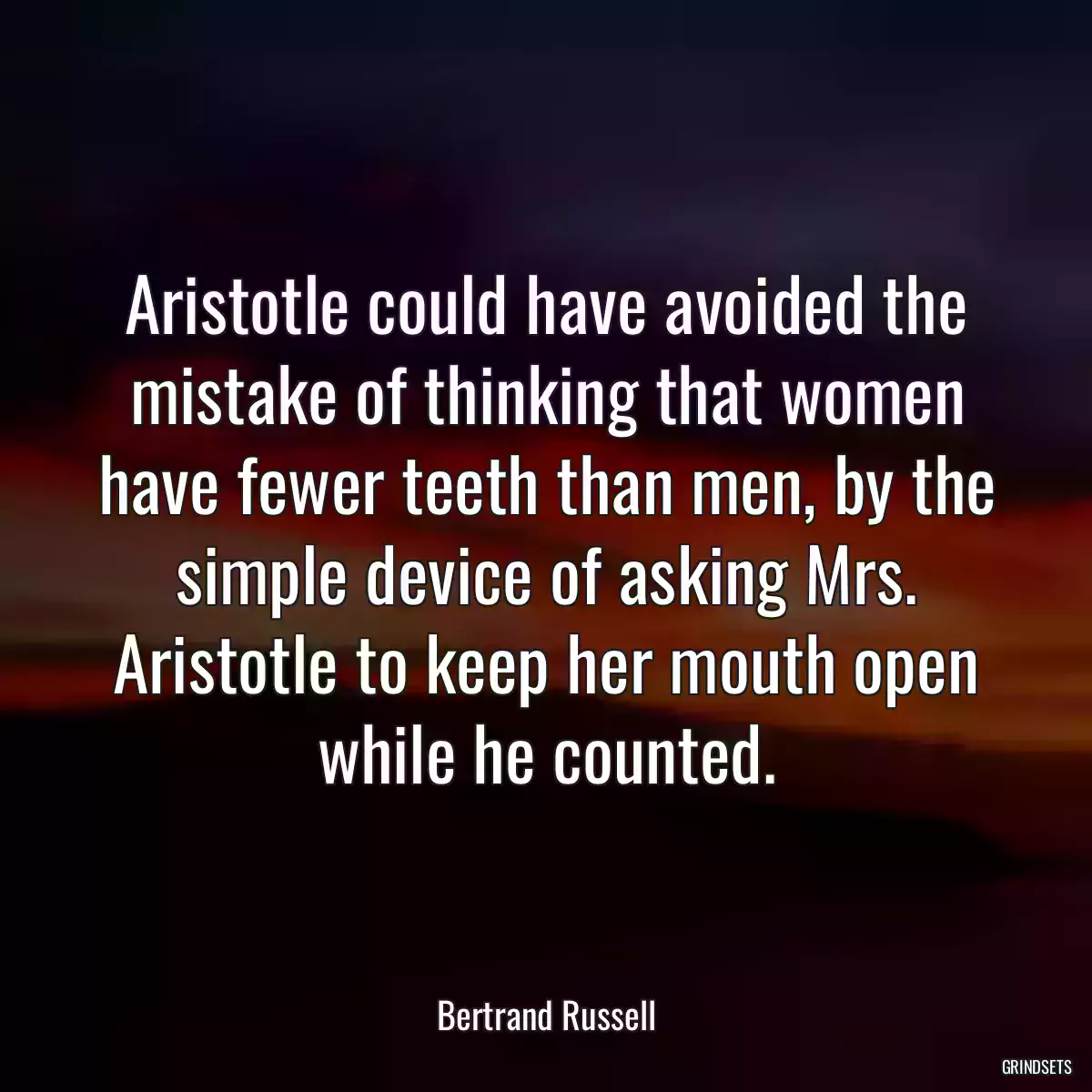
Quotes Bertrand Russell - page 5
Find dozens of Bertrand Russell with images to copy and share.

Marx's father became a Christian when Marx was a little boy, and some, at least, of the dogmas he must have then accepted seem to have born fruit in his son's psychology.
...I am afraid that education is conceived more in terms of indoctrination by most school officials than in terms of enlightenment. My own belief is that education must be subversive if it is to be meaningful. By this I mean that it must challenge all the things we take for granted, examine all accepted assumptions, tamper with every sacred cow, and instill a desire to question and doubt. Without this the mere instruction to memorise data is empty. The attempt to enforce conventional mediocrity on the young is criminal.
The saviors of the world, society's last hope.
You may also like
If a man is offered a fact which goes against his instincts, he will scrutinize it closely, and unless the evidence is overwhelming, he will refuse to believe it. If, on the other hand, he is offered something which affords a reason for acting in accordance to his instincts, he will accept it even on the slightest evidence. The origin of myths is explained in this way.
No people anywhere in the world would accept being expelled en masse from their own country; how can anyone require the people of Palestine to accept a punishment which nobody else would tolerate?
The key to happiness is accepting one unpleasant reality every day.
To the young I should offer two maxims: Don't accept superficial solutions of difficult problems. It is better to do a little good than much harm. I should not offer anything more specific; every young person should decide on his or her own credo.
The doctrine (of) maintaining that the language of daily life, with words used in their ordinary meanings, suffices for philosophy . . . I find myself totally unable to accept . . . . Because it makes almost inevitable the perpetuation amongst philosophers of the muddle-headedness they have taken over from common sense.

A democrat need not believe that the majority will always reach a wise decision. He should however believe in the necessity of accepting the decision of the majority, be it wise or unwise, until such a time that the majority reaches another decision.
I do not think that the real reason why people accept religion has anything to do with argumentation. They accept religion on emotional grounds.
More and more people are becoming unable to accept traditional [religious] beliefs. If they think that, apart from these beliefs, there is no reason for kindly behaviour, the results may be needlessly unfortunate. That is why it is important to show that no supernatural reasons are needed to make [people] kind and to prove that only through kindness can the human race achieve happiness.
Human life, its growth, its hopes, fears, loves, et cetera, are the result of accidents
Right conduct can never, except by some rare accident, be promoted by ignorance or hindered by knowledge.
The world in which we live can be understood as a result of muddle and accident; but if it is the outcome of deliberate purpose, the purpose must have been that of a fiend. For my part, I find accident a less painful and more plausible hypothesis.
All serious innovation is only rendered possible by some accident enabling unpopular persons to survive.
You may reasonably expect a man to walk a tightrope safely for ten minutes; it would be unreasonable to do so without accident for two hundred years.
You may also like

In astronomy, the law of gravitation is plainly better worth knowing than the position of a particular planet on a particular night, or even on every night throughout a year. There are in the law a splendour and simplicity and sense of mastery which illuminate a mass of otherwise uninteresting details. But in history the matter is far otherwise. Historical facts, many of them, have an intrinsic value, a profound interest on their own account, which makes them worthy of study, quite apart from any possibility of linking them together by means of causal laws.